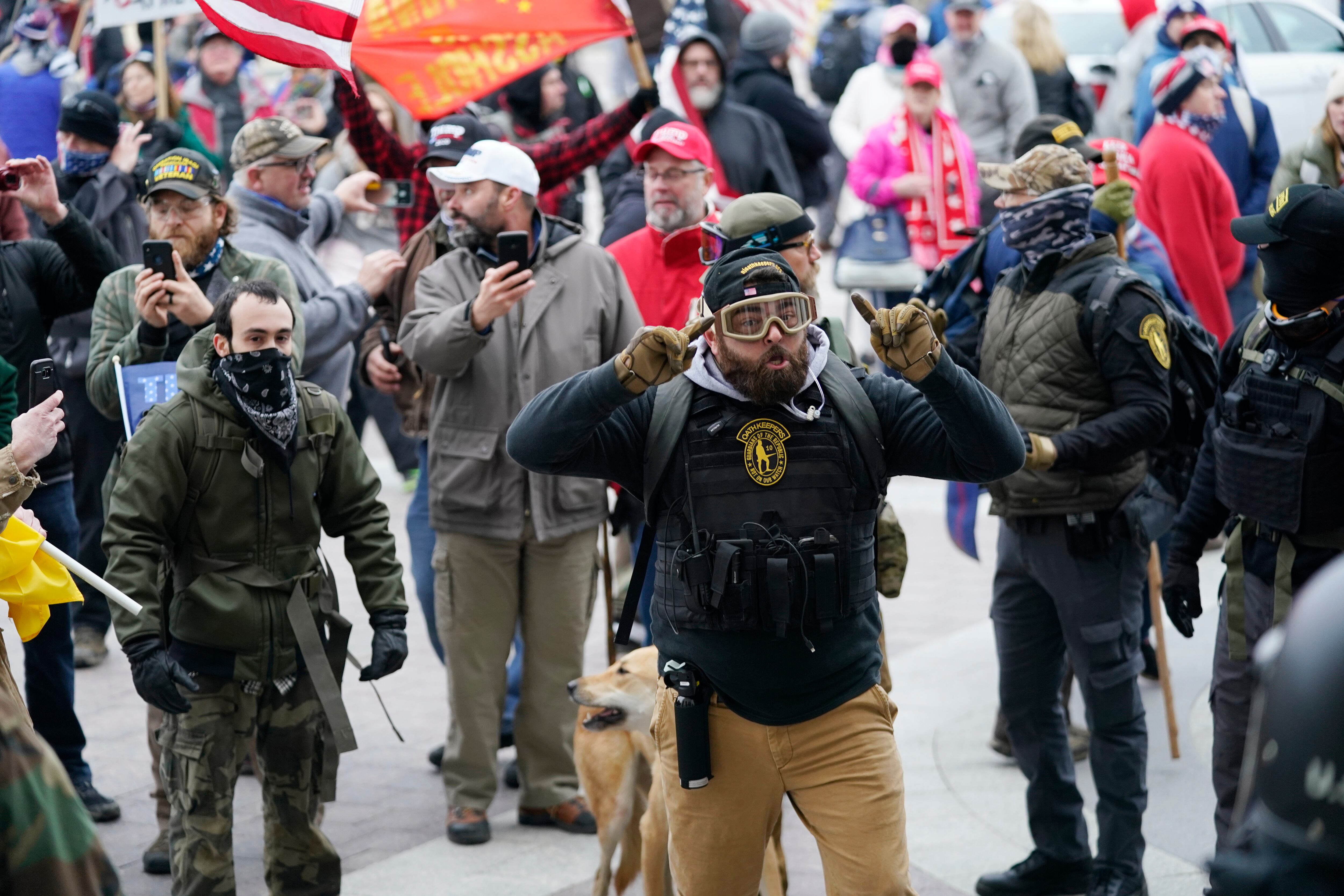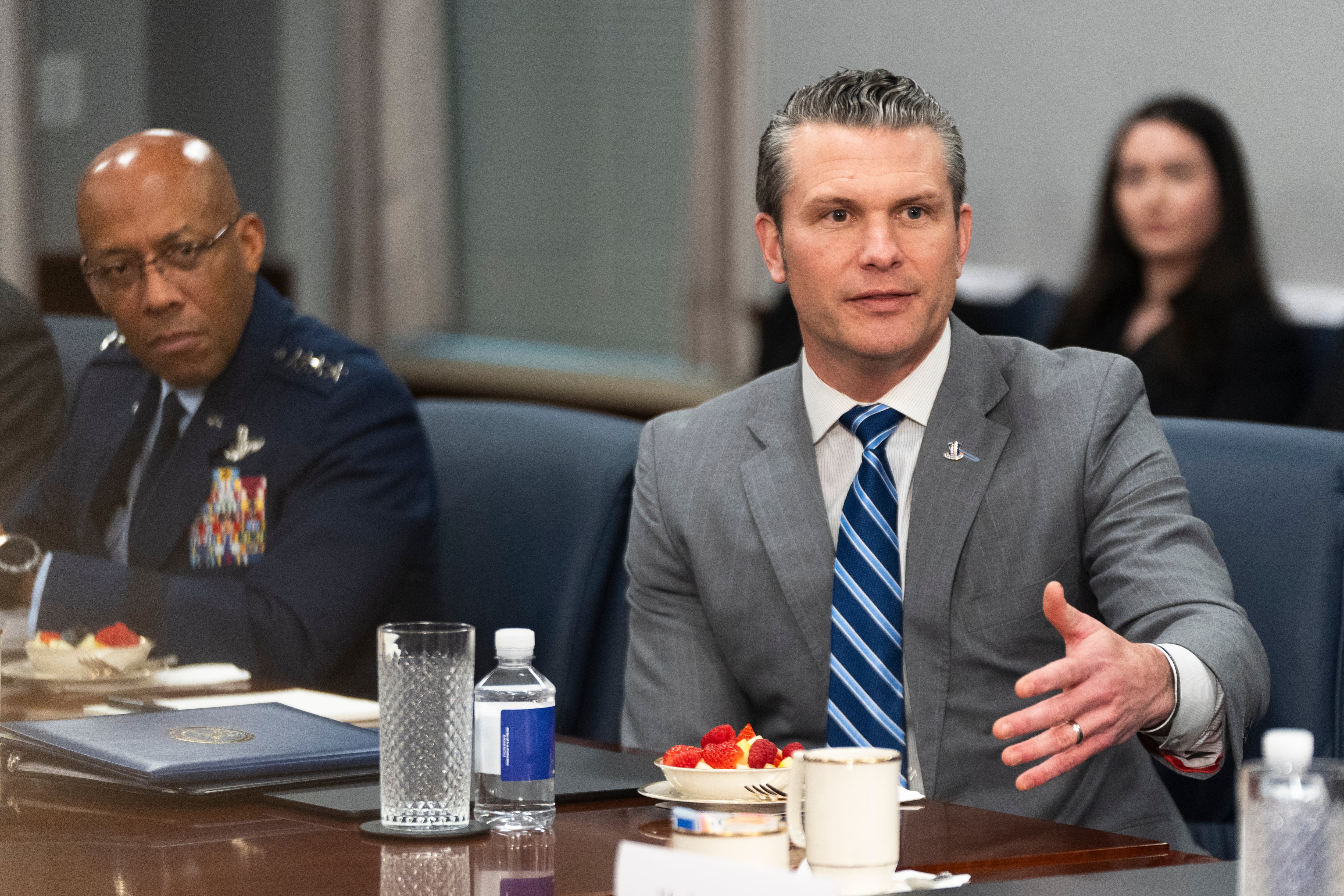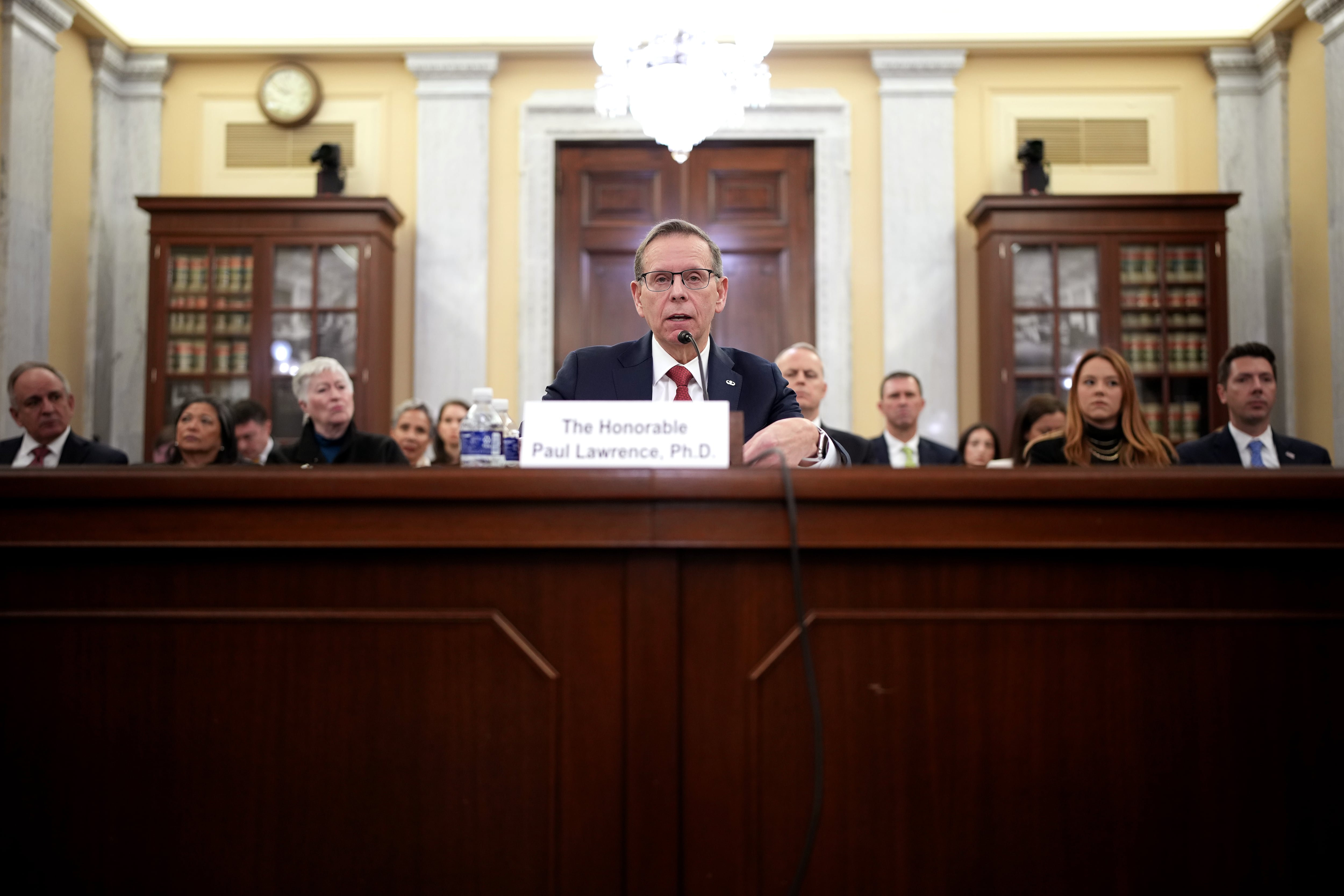Both Democrats and Republicans believe that extremism has no place in the U.S. military. But they don’t agree whether it’s already present there.
Members of Congress sparred Tuesday at a House Armed Services Committee hearing on extremism in the ranks over what counts as hate speech, how big the problem is in the armed forces, and whether anything needs to be done to address it.
Democrats on the panel pointed to the large number of veterans involved in the Jan. 6 attack on the U.S. Capitol (reports have indicated almost a quarter of individuals arrested have a military background) and increased recruiting of military members by white supremacist groups in recent years as warning signs that must be addressed.
RELATED

Republicans countered that actual criminal convictions of extremist activity in the ranks remain low, and said they believe the issue is more of a political talking point than an actual military problem.
“I want to root out of the military those who actively participate in vile and violent hate groups,” said Rep. Mike Rogers, R-Ala. “But it’s important to remember that extremist behavior is already prohibited by the Uniform Code of Military Justice and by each service’s own regulations … This is far from the largest military justice issue facing our armed services.”
Earlier this year, Defense Secretary Lloyd Austin ordered a 60-day stand down across the services to address the issue of extremism, to include group discussions on hate speech and violence.
A Military Times poll last fall found that about one-third of all active-duty troops saw signs of white supremacist or racist ideology among their peers. More than half of minorities surveyed reported seeing such problems.
Last year, Congress ordered the Defense Department in command climate surveys to better study the instances of extremist activities or affiliation with violent hate groups, citing limitations in using only criminal convictions to track the problem.
Only nine soldiers and 17 Marines have been forced out of the military in recent years for misconduct related to extremism. But outside analysts have said that doesn’t indicate how many troops may be frequenting white supremacist web sites, attending meetings of extremist groups or helping spread that ideology to peers.
“The data is the most important question,” said Audrey Kurth Cronin, director for the Center for Security, Innovation and New Technology at American University. “There’s no way you can answer the question unless you have data on the problem.”
Defense Department officials have not said when that kind of monitoring data may be released. Officials have not started to implement another suggestion to create a specific separation code to indicate domestic extremism as a cause for discharge, another possible tool for tracking the problem.
But Democrats on the panel said even a small number of extremists in the military demands immediate action, to ensure that public trust in the institution isn’t eroded.
RELATED

Committee Chairman Adam Smith, D-Wash., said he is particularly upset by what he sees as a rise in anti-government views among uniformed troops, and how that fits into other violent ideology.
“If you disagree with the U.S. Constitution and you disagree with the laws of this country so strongly that you think our government is no longer legitimate, then you have no business serving in the U.S. military and you should get out now,” Smith said.
However, how to identify and deal with those views remains a problem. Current Defense Department rules do not prohibit troops from belonging to groups with anti-American or extremist views, but service members can be punished for acting on those beliefs.
Several Democrats said those rules should be reviewed, and that military recruiters need to do a better job looking into applicants’ past to ensure they aren’t espousing extremist views.
But they acknowledged that striking the balance between free speech and eliminating extremist beliefs is difficult. Michael Berry, general counsel for the First Liberty Institute, warned that any new rules attempting to limit individuals’ views or beliefs could create greater problems in the future.
“We should be criminalizing conduct and not their thoughts, because that’s nearly impossible to do,” he said.
Most Republicans on the panel spent their time attacking the hearing itself rather than addressing the issue of extremism, calling it politically motivated “nonsense.”
Defense Department officials were not invited to Tuesday’s hearing. Committee officials have promised to bring them to Capitol Hill for future discussions on the topic, as Pentagon leaders develop their own plans to address the issue.
Leo covers Congress, Veterans Affairs and the White House for Military Times. He has covered Washington, D.C. since 2004, focusing on military personnel and veterans policies. His work has earned numerous honors, including a 2009 Polk award, a 2010 National Headliner Award, the IAVA Leadership in Journalism award and the VFW News Media award.





